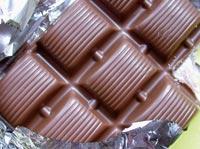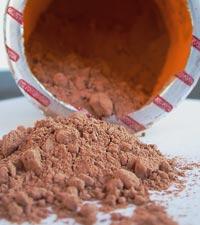Myths about chocolate

Above all expressions, the most remarkable thing is that prolonged consumption of chocolate causes addiction. It is true that chocolate causes a certain passion, but from there to addiction there is a lot of way.
To explain the need to consume chocolate, two interpretations have been made among experts. Several scientists talk about the neurological basis: chocolate or its components launch physiological reactions in the brain, resulting in a passion or "addiction" to this substance. For other experts, however, these reactions should be understood within a learning process, and according to these theories the consumption of chocolate would basically be a response to the level of behavior of education and living habits.
Dependence is impossible
Chocolate cannot be considered addictive. Addiction and passion are two very different things that should not be confused. Passion appears when the desire for a substance that produces pleasure is not fulfilled. Stress is the main cause and the consumption of this desired substance makes the tension generated inside the person disappear better than any other remedy.
In the area of dependence, however, the problem focuses on the habitual consumption of a certain substance, less and less effective to respond to a need of the person, so withdrawal syndrome appears when you stop consuming.
Therefore, in no case can we call addiction to excessive chocolate consumption by some people. Psychiatrist Antonio Balbuena conducted extensive research at the Autonomous University of Barcelona, with the aim of clarifying whether or not chocolate consumption followed the pattern of consumption of a drug, and the conclusions were very clear: from a purely physiological point of view, a person should eat 15 kilos of chocolate daily so that the components that contain chocolate and that are potentially addictive accumulate in his body.
However, 15-18% of people who participated in this study declared themselves dependent on chocolate. And why do they make that assessment? According to the expert, since chocolate is a food, which carries no negative charge, it would be pleasant or funny for people to recognize a dependence of this type. But from a physiological point of view, there is no dependence, no withdrawal syndrome or lack of control. At most, we could talk about passion for chocolate.
And what about the relationship between chocolate consumption and depression so well known and used? It is true that many depressed people tend to eat chocolate. In this sense, Antonio Balbuena began his research at first looking for the antidepressant effect, but at present much more is observed the physiological and psychological effects of chocolate.
Psychological effects

It is common to associate chocolate consumption with certain mood situations. After episodes of worry, stress or anxiety, chocolate consumption increases. Chocolate consumption for long years with moments of enjoyment, childhood, etc. has been associated. However, in addition to behaviors such as stimulus/response, every day there are more research that would show that some components of chocolate would push us to consumption.
Physiological effects
Serotonin produces sensations such as tranquility or happiness. And it is demonstrated that once chocolate is consumed, tryptophan is produced in the brain, associated with serotonin tryptophan.
On the other hand, chocolate has a high magnesium content. If lack of magnesium has been associated with the symptoms of PMS, it is easy to understand that in some women the consumption of chocolate improves their mood, especially in days before menstruation or when they are depressed
Another component of chocolate, called theobromine, works as a diuretic and excites the renal system. Chocolate also excites the central nervous system like caffeine.
The polyphenols contained in chocolate are also very appropriate to protect against heart disease, as well as to prevent degenerative diseases, the cellular aging process and, according to some, cancer. A cup of cocoa contains 100 mg of polyphenol.
Finally, the fats present in chocolate produce a feeling of satiety. Carbohydrates cause the brain to get more oxygen and therefore the head to work faster with some flexibility or rigor.
Other myths about chocolateChocolate fattened. Therefore, it is a food with many calories. But, as always, if you take it in moderation, don't blame your excess chocolate. Acne worsens the presence of Skin Pimples and gentlemen has no relationship with chocolate, as dietary fat does not accumulate in the sebaceous glands. Chocolate, sugar and other sweets have traditionally been the main cause of cavities. But other factors are more important, especially poor oral hygiene. Therefore, it is no reason to discard chocolate if taken in moderation. It is true that some components of chocolate (tyramine, histamine, phenylethylamine) are associated with migraines. But there is no proof of that. |





